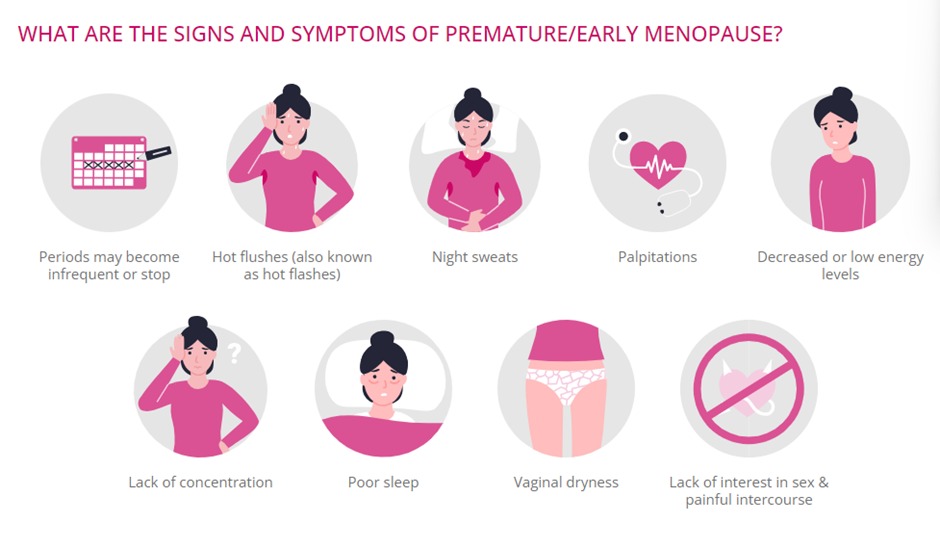
Understanding Early and Premature Menopause Menopause marks the end of menstrual cycles in women, typically occurring between 45 and 55 years of age, with 51 being the average. However, a minority of women experience this phase earlier.
The Significance of Age Menopause before the age of 40 is termed as premature menopause or premature ovarian failure, terms often used interchangeably which might lead to confusion. Early menopause refers to the phase before 45 years, whereas premature menopause is identified if it happens under 40 years. Remarkably, premature menopause can affect individuals under 40, including teenagers.
Exploring Early/Premature Menopause Essentially, this condition arises when the ovaries cease to function prematurely, halting the production of key hormones like estrogen and progesterone prematurely. These hormones, along with follicle stimulating hormone (FSH) and luteinising hormone (LH), play a crucial role in


the menstrual cycle, facilitating the development of eggs. In cases of premature menopause, the ovaries do not produce adequate levels of estrogen, and egg development is impaired.
Causes of Premature Menopause Premature menopause can stem from primary or secondary causes. Often, the exact reason remains unknown. Primary causes might include genetic abnormalities, such as those seen in individuals with Down syndrome, or enzyme deficiencies that damage eggs and hinder estrogen production. Autoimmune diseases, where the body mistakenly attacks its own cells, can also be a factor.
Secondary reasons are linked to medical treatments like radiation or chemotherapy, which vary in risk based on the treatment type and the individual's age. Other secondary factors include surgical removal of the ovaries or a hysterectomy.